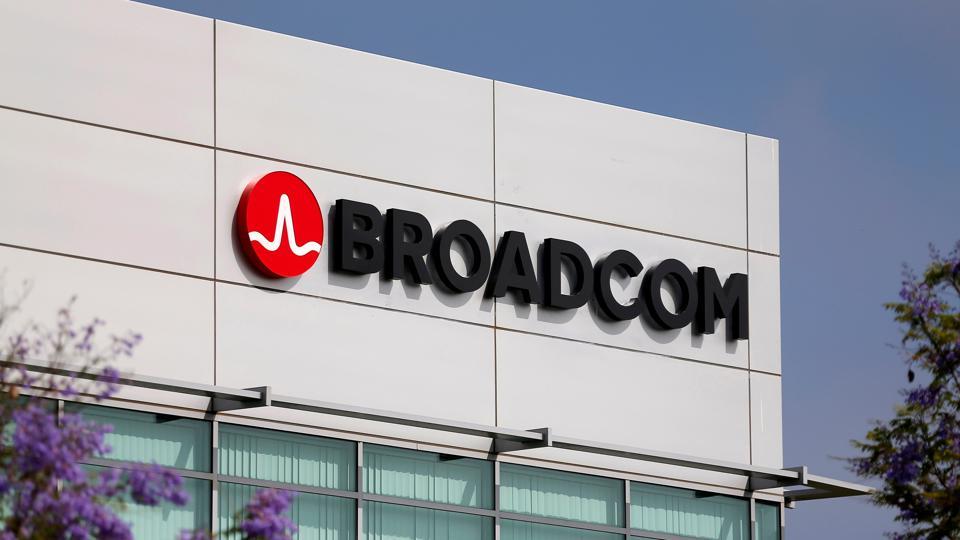Donald Trump halts Broadcom’s bid to acquire Qualcomm
Broadcom says its proposed acquisition of Qualcomm doesn’t raise any national security concerns.

Broadcom Chief Executive Officer Hock Tan won over Qualcomm shareholders to his plan for consolidating the chip industry. The U.S. government barely even heard him out.
Tan, the driving force behind a string of acquisitions that has created one of the chip industry's biggest companies, was told late Monday he won't be allowed to proceed with his most ambitious project, the $117 billion hostile bid for rival Qualcomm. An executive order from President Donald Trump telling the two companies to cease all merger activity came just hours after Tan met officials in an attempt to diffuse security concerns surrounding the deal. Tan had earlier promised to move his headquarters from Singapore to the U.S.
Broadcom "strongly disagrees that its proposed acquisition of Qualcomm raises any national security concerns," it said in a statement, which didn't make clear whether it will try to appeal the decision.
It's the first major setback for man who's been changing the $400-billion business by buying up rivals, making them more profitable and winning rave reviews from investors along the way. Grabbing Qualcomm would have proven the ultimate vindication of his belief that the growth spurt of the 50-year old industry is over and it's time to focus on profit. His offer for Qualcomm would have been the biggest transaction in the history of the technology industry.
The bid for Qualcomm, which faced fierce resistance from that company's management and board, was just one of a number of a number of deals that Tan was considering, according to people familiar with his thinking. The Trump administration, which welcomed him to an event in the Oval Office in November to celebrate Broadcom's announcement of a return to the U.S., now appears to have sided with those who want to curb his influence and casts doubt on whether his career as a dealmaker in the U.S. can continue.
The Malaysia-born 66-year-old learned much of what he knows from working with private equity firms. In 1994, he joined Integrated Circuit Systems Inc., a chipmaker that was taken private, relisted and then sold while he was there. That success brought Tan to the attention of Silver Lake and KKR & Co. The two PE firms tapped him to run Avago Technologies, which he used to roll up by some of the biggest names in the industry, culminating with the acquisition of Broadcom and the adoption of the target's name.
Broadcom came very close to getting hold of Qualcomm, the world's largest maker of mobile-phone chips. Its nominees for Qualcomm's board were winning with more than half of the proxy votes counted just two days before a shareholder meeting was to be held. An order by the Committee on Foreign Investment in the U.S. stopped that vote from going ahead and postponed it. CFIUS's wide-ranging concerns about the security implications of the deal may have a bearing on other transactions Tan is considering.
While CFIUS cited Qualcomm's government contract work as an area it was looking at, it also made broader accusations about Broadcom's commitment to spending on new technology that's important to U.S. leadership in the technology industry. It alleged the company might cut back on research into phone technology where Qualcomm has been a pioneer. New fifth-generation, or 5G, phone systems will debut later this year, bringing faster data and connections for previously unconnected items like cars or light bulbs. That's a market that may now be beyond Broadcom's reach.
"They threw the book at Broadcom because they're worried about 5G," said Ruben Roy, an analyst at MKM Partners LLC. "It probably narrows what he can do in 5G."
CIFIUS specifically raised concerns about the growing influence of Huawei Technologies Co. in the wireless industry. China's largest maker of telecom equipment, which was blacklisted by the U.S. House Intelligence Committee in 2012 over security risks, may have gained even more sway if Broadcom had succeeded in acquiring Qualcomm.
Roy said Broadcom may face less opposition if it looks at other areas such as data center technology. Going after Xilinx Inc., a maker of programmable chips, might make sense and be possible, he said.
RBC Capital Markets analyst Amit Daryanani suggested Broadcom might now turn its interest to a list of acquisition options including Xilinx, Analog Devices Inc., Maxim Integrated Products Inc. or a maker of memory chips.
Others are estimating that Broadcom's run as an acquirer may be over, after reaching $17.7 billion in sales last year from about $2 billion in 2010, which fueled profits, attracted investors and pushed its market value to $108 billion. Before launching its attempt to get hold of Qualcomm last year, Broadcom's management had been saying it would focus on cutting debt, improving profitability and returning more cash to investors, according to Mike Walkley, an analyst at Canaccord Genuity.
"They might have to go back to that," he said.
Catch all the Latest Tech News, Mobile News, Laptop News, Gaming news, Wearables News , How To News, also keep up with us on Whatsapp channel,Twitter, Facebook, Google News, and Instagram. For our latest videos, subscribe to our YouTube channel.































